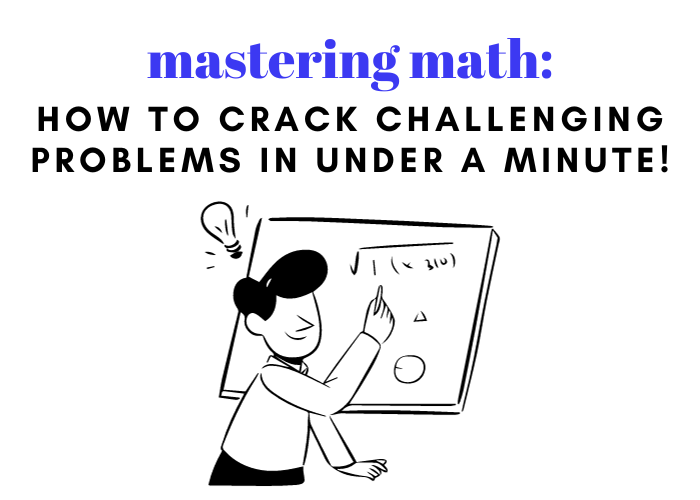

Last Updated on August 31, 2021
Is your child struggling with math homework? Whether they’re bored, frustrated, or just plain stressed, it may help to switch things up to keep them engaged. One of the best ways to do this is to make it as fun as possible! Apps and games are a great way to complement online tutoring and provide math homework help that your child will actually enjoy.
While games of all types can enhance learning, digital games specifically are great to incorporate. Today’s students, after all, are already familiar with technology and communicating digitally. In fact, a 2017 census from Common Sense Media found that kids eight and under spend an average of two-and-a-quarter hours a day with screen media, which includes mobile devices, TVs, and computers.
So, how exactly do games enhance the learning experience? Read on to learn about the specific benefits, and how you can encourage your child to learn with digital games.
By creating a space for fun learning for your student, you can promote engagement, deep learning, and meaning that emphasizes the learning process. This makes it more personal and contributes to their overall development.
Digital games do just that, allowing students to learn while having fun. Games also help students build a variety of other skills that they can take back to the classroom. Keep reading to learn more!
1. Digital Games Help Students Have Fun So They Can Learn More
When learning is masked with gamification, your student may not even realize how much they are learning because they’re having so much fun! This can be very helpful when your student needs a break from traditional math homework help or worksheets.
Students also retain information better when they are engaged, motivated and feel minimal stress. Often this type of learning doesn’t come from traditional classroom environments or textbooks, but from experiences that are enjoyable and relevant to their lives and interests.
For many of today’s students, digital games fit this description of superior learning. Their comfort with digital devices can make learning feel enjoyable, which can influence how the brain receives and stores information.
Plus, your brain releases dopamine when you’re having fun, which activates its “reward center.” The more dopamine that is released, the more we want to repeat that activity. If you can cause this reaction in your student’s brain as they’re practicing math skills, like with an online math game, this may encourage them to seek out other fun math activities.
2. Video Games Can Actually Help Grow Areas of the Brain
So, what if your child sees through the guise and isn’t interested in a math-specific game? Surprisingly, many types of games offer the same benefits. An October 2013 study, “Playing Super Mario Induces Structural Brain Plasticity: Gray Matter Changes Resulting from Training with a Commercial Video Game,” showed interesting results in the growth of certain areas of the brain from video games.
This study showed that playing video games can stimulate neurogenesis – the growth of new neurons — and connectivity in the brain regions responsible for spatial orientation, memory formation, strategic planning and fine motor skills. In comparison to a control group, those who played video games showed increases in gray matter through the use of magnetic resonance imaging (MRI).
Study leader Simone Kühn, senior scientist at the Center for Lifespan Psychology at the Max Planck Institute for Human Development, said: “While previous studies have shown differences in brain structure of video gamers, the present study can demonstrate the direct causal link between video gaming and a volumetric brain increase. This proves that specific brain regions can be trained by means of video games.”
3. Video Games Improve Specific Cognitive Abilities
Games can also encourage and improve specific cognitive skills, which can help your child as they continue through school and beyond.
A 2013 study featured in American Psychologist found that playing action-based games, in particular, helped kids with their spatial skills. The level of improvements in spatial skills from these games was comparable to the training received from high school and university-level courses. Spatial skills are especially important for continuing education in science, technology, engineering, and mathematics (STEM).
A 2014 Proceedings of the National Academy of Sciences study also saw improvements with players’ perceptual and attentional skills.
Research professor Daphne Bavelier explained in the corresponding news release: “Our brains keep predicting what will come next — whether when listening to a conversation, driving, or even performing surgery. In order to sharpen its prediction skills, our brains constantly build models, or ‘templates,’ of the world. The better the template, the better the performance. And now we know playing action video game actually fosters better templates.”
Even better, the study showed that the improved performance has a lasting effect. When tested later, those who had been action-trained still outperformed the other subjects of the study.
This study has implications for students in all academic subjects, but especially if they’re struggling with math homework help and could use an added boost of confidence.
4. Digital Games Give Students an Environment for Positive Failure
In an NPR interview, Greg Toppo, author of “The Game Believes in You: How Digital Play Can Make Our Kids Smarter,” explained what neuroscientists have found about gaming and rewarding the brain: “The basic idea is that if you’re close to succeeding at something, you’ll try until you succeed. That is, if a system — a game or anything else — gives you a sense of even partial accomplishment, you will do almost anything to get to that goal.”
With games, the fear of failure is minimized because students expect to fail in games – it’s just part of the process. This is much different than what they are taught about failure in school, where failure is seen as more negative.
On the same point, MIND Research Institute CEO and Co-Founder Matthew Peterson explains, “You get penalized for making mistakes in the normal education system. But in a game you learn tremendously from making mistakes, and you’re not worried as much about making mistakes, unless it’s toward the end of a level or something like that. But from the learning aspect, mistakes are powerful and important and you embrace them. If you can allow some of that to crossover into the rest of education, it’s going to do a lot of good.”
For the student struggling with math, being able to see failure in a positive light can help them grow through the learning process. They may face hard times in their math work and with their math tutor, but knowing that they have the option to fail can take some of the pressure off and allow them to have some fun with it.
5. Digital Games Can Improve Communication
Video games can also be an extremely social experience. In fact, Pew Research Center found that nearly two-thirds of young Americans play video games while interacting with their friends and family.
While playing games, players need to communicate and work collectively to reach a common goal. You also must construct arguments for decisions during games and critique the work of others as you go. In a multiplayer game, for example, different people are controlling different characters, but the individuals have to work together to complete the mission.
Outside of games, your student may already be using their digital devices to communicate, such as through chat programs or social media. Playing online math games or using a math tutoring app can show them ways to communicate, so they can start thinking of their digital device as a learning assistant. As they get older, they’ll be more apt to use their device to look up a subject they’re interested in, or learn about something new.
There are numerous digital games and apps out there for your student to seek out to add to their math learning routine. If you’re already seeing success from math worksheets and non-digital math games, adding a digital component can be the perfect next step for your student’s success.
One great way to successfully add digital games into your student’s regular math routine is to use the games as a reward. Set a goal for a certain number of math worksheets finished or a percentage of questions answered correctly. If your student hits the goal, then you can use a digital game – math or otherwise – as a way to reward them and continue their learning. Depending on the game, your student may not even realize that they’re learning while they are having fun — so it’s a win-win!
And if your student is seeing the benefits of these digital games and apps for math homework help, you can also consider adding the Thinkster online tutoring program to your math routine as an additional layer of help.
Our system is tiered so that you can decide how much math help you need from a Silver package of unlimited worksheets and daily feedback up to a Platinum package with a full-fledged, one-on-one math tutor, test preparation, math homework help and more. Ready to get started? Sign up for a 7-day free trial and start learning today!


